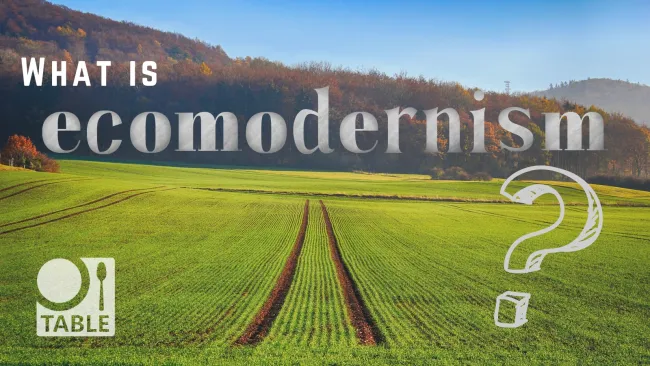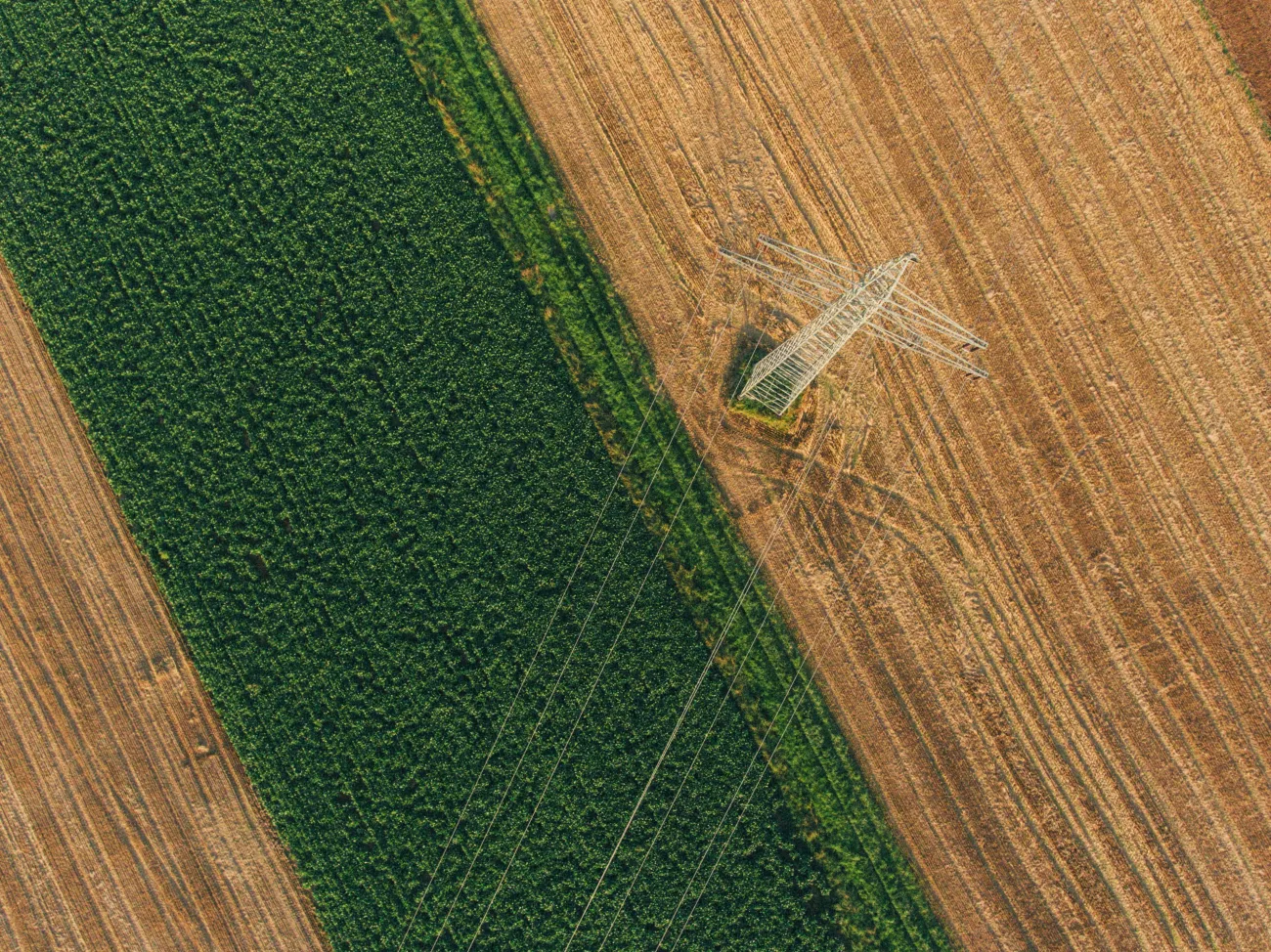This event was hosted by TABLE on 15 June 2022 and took the format of a panel discussion with:
Dr Tara Garnett (director of TABLE and fellow of the Oxford Martin School);
Helen Breewood, research & communications officer at TABLE & author of the explainer on ecomodernism;
Linus Blomqvist, co-author of the Ecomodernist Manifesto, former director of the Conservation and Food & Agriculture programmes at the Breakthrough Institute & PhD candidate in Environmental Economics and Science at University of California, Santa Barbara;
Sam Bliss, PhD candidate in natural resources at the University of Vermont's Gund Institute for Environment & president of DegrowUS.

This is a recording of the event "What is ecomodernism? Perspectives from ecomodernism and degrowth on limits to growth, lifestyles and media narratives" which occurred on June 15, 2022. The aim of the event was to discuss the recently launched TABLE explainer on ecomodernism, which can be found here. You can also listen to a podcast episode about the explainer with co-author Helen Breewood here.
Ecomodernism is an environmental movement that emphasises the role of technology in enabling material prosperity while also protecting ecosystems. It stands in contrast to the degrowth movement, which challenges the current economic paradigm, and emphasises the need to reduce global consumption and production in ways that tackle inequality and foster environmental sustainability. The two philosophies paint different visions for the future of humanity and the planet. At this TABLE event, research and communications officer Helen Breewood summarises the new TABLE explainer "What is ecomodernism?" This presentation is followed by a discussion between our guest speakers Linus Blomqvist and Sam Bliss, chaired by TABLE director Tara Garnett, in which we hear both ecomodernist and degrowth perspectives on the following issues:
- What is ecomodernism? How is the concept represented and misrepresented?
- Is the idea of planetary boundaries valid? Do we need to change our lifestyles to avoid irreversible environmental damage? What is the role of technology in decreasing our impacts?
- What are the most important components of a good life - material wellbeing, community ties, meaningful work? How do ecomodernism and degrowth differ in their views here?
- To what extent does ecomodernism conflict or align with mainstream narratives from the media, politicians and industry?
Guest speakers:
- Linus Blomqvist is a PhD candidate in Environmental Economics and Science at University of California, Santa Barbara and former director of the Conservation and Food & Agriculture programmes at the Breakthrough Institute, where he is also a Senior Fellow. Linus is a co-author of the Ecomodernist Manifesto. He is interested in how technology can help decouple environmental impacts from economic growth, and is working on strategies to meet food demand while protecting biodiversity.
- Sam Bliss is a Ph.D. candidate in natural resources at the University of Vermont's Gund Institute for Environment. His doctoral research and community organizing focus on the production and distribution of food that's not for sale. Sam has studied ecomodernism since 2015 and published academic and popular articles on the topic. He is the U.S. correspondent of scholar-activist collective Research & Degrowth and also president of DegrowUS.
We invite continuing discussion around this event on our community platform: https://community.tabledebates.org/t/table-event-what-is-ecomodernism-perspectives-from-ecomodernism-and-degrowth-on-limits-to-growth-lifestyles-and-media-narratives/466
This event was organized by TABLE, a collaboration between the University of Oxford, the Swedish University of Agricultural Sciences, and Wageningen University & Research. Learn more at https://tabledebates.org/.




Comments (0)